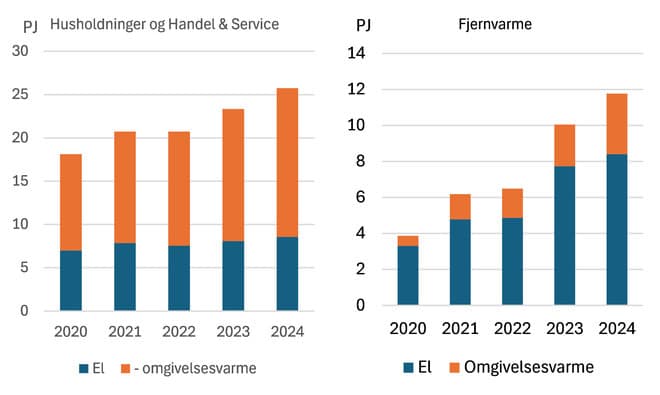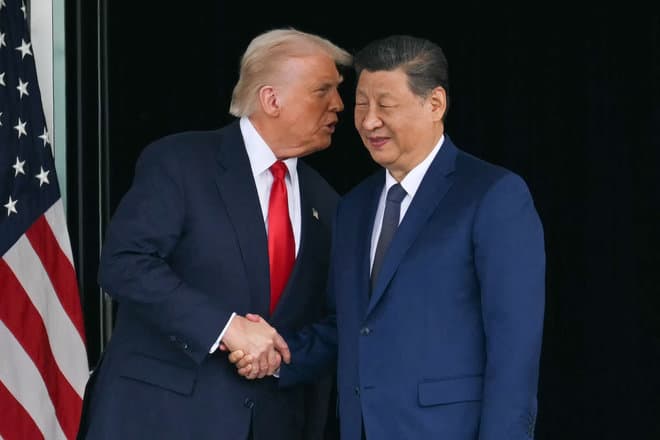
US President Donald Trump has caused a stir around the world with his economic policies. The extensive higher tariffs that have hit almost everything and everyone are at the heart of the Trump administration's economic agenda. But the question is whether Trump's "unprecedented use of power", as AFP describes it, is legal.
On Wednesday, the US Supreme Court will hear arguments for and against. The case has ended up in the Supreme Court after several lower courts have said that the Republican president has exceeded his powers.
The tariffs have been introduced using a federal law, the intention of which is that it should only be used in emergency situations. The law allows a president to regulate a number of economic matters when a national emergency is declared.
Trump says the US trade deficit in 2024 will amount to an emergency, even though the US has had a trade deficit every year since 1975. According to Reuters, he is the first president to use the possibilities of the law.
- For decades, our country has been plundered by nations from near and far, and by friends and foes alike, Trump said in April when he announced the so-called retaliatory tariffs. Retaliation - that means that what they do to us, we do to them.
Several instances have voted against Trump's tariffs
The tariffs are intended to protect and strengthen American industry. But the move was quickly challenged in the courts. A lower court said in May that Trump does not have the right to impose the tariffs. The Trump administration appealed why the tariffs continued to apply.
In August, an appeals court came to the same conclusion, which is why the dispute has now ended up in the Supreme Court. According to AFP, the Supreme Court's decision will have major consequences. But it could take months before a decision is ready.
The Supreme Court, where six of the nine justices are conservatives, has already sided with Trump in a number of decisions this year, writes Reuters. If it finds that the tariffs are illegal, it will hit Trump's economic policy. If the Supreme Court, on the other hand, finds Trump's actions within the scope of the agreement, it could open the door to even more similar measures.
The Supreme Court's decision will not directly affect sector-specific tariffs that Trump has imposed on, for example, steel, aluminum and cars.
The Trump administration believes that the tariffs have pressured major US trading partners such as Japan and the EU to make major concessions in negotiations with the United States.
It will help the United States reduce its trade deficit, and the outcome of those negotiations will stand regardless of the Supreme Court's decision, according to administration officials, according to Reuters.
According to AFP, American companies, especially small businesses, say they are suffering from the rising costs that the tariffs have brought.
Economics professor Kent Smetters from the University of Pennsylvania warns that American companies could "become less competitive" if the tariffs are maintained.
Will find other methods of defeat
But it will not go anywhere, regardless of what the Supreme Court decides. That is according to US Treasury Secretary Scott Bessent. According to Reuters, he says he expects the Supreme Court to rule in the administration's favor.
But if the Supreme Court follows the lower courts' decision, Trump and co. will simply find other laws that they can use to maintain the high tariffs. There are several to choose from, Bessent points out.
- You should expect the tariffs to be here to stay.
Professor Smetters is excited about the outcome.
- If the Supreme Court really allows it, the question is what else the administration can do without Congress's permission, he tells AFP.
/ritzau/
Text, graphics, images, sound, and other content on this website are protected under copyright law. DK Medier reserves all rights to the content, including the right to exploit the content for the purpose of text and data mining, cf. Section 11b of the Copyright Act and Article 4 of the DSM Directive.
Customers with IP agreements/major customer agreements may only share Danish Offshore Industry articles internally for the purpose of handling specific cases. Sharing in connection with specific cases refers to journaling, archiving, or similar uses.
Customers with a personal subscription/login may not share Danish Offshore Industry articles with individuals who do not themselves have a personal subscription to Danish Offshore Industry.
Any deviation from the above requires written consent from DK Medier.






















